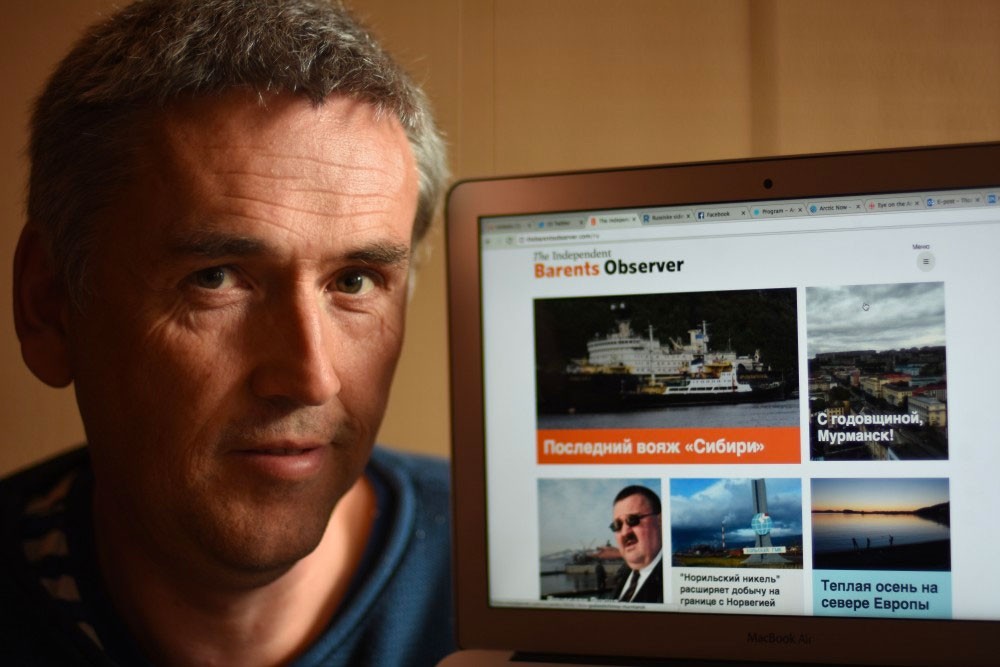Norwegian Arctic journalist barred from Russia

A prominent journalist who heads a Norwegian news site covering covering the European and Russian Arctic said he has been labeled a threat to Russian national security and barred from country for five years.
Thomas Nilsen, editor of The Independent Barents Observer, said in an account published on the site Thursday that he was detained by Russia’s Federal Security Services (FSB) at a border crossing Wednesday afternoon, while traveling with a group from the Danish Parliament’s Foreign Affairs Committee.
“I was told it was necessary to deny me access to Russia for the purpose of state security,” Nilsen said.“The officers could not elaborate further and it was obvious the decision was taken somewhere else.”
The Independent Barents Observer is an Arctic Now partner, and the work of Nilsen and his colleague, Atle Staalesen, regularly appears on this site.
Speaking to High North News (another Arctic Now partner), Nilsen said that being barred from Russia came as a shock.
“We live in a time when the climate between the West and Russia has grown colder, while Russia at the same time emphasizes that the Arctic is an area of dialogue,” he said. “However, I never thought I would be shut out from that dialogue.”
Nilsen is referring, in part, to a high-level Arctic forum, The Arctic: Territory of Dialogue, being hosted later this month in Arkhangelsk. In what’s been regarded as a sign of warming relations between the two Arctic neighbors, Norway’s foreign minister, Børge Brende, is attending the forum—his first visit to Russia since the annexation of Crimea in 2014, as Nilsen has reported.
Nilsen told Norwegian broadcaster NRK that he believes The Independent Barents Observer earned the enmity of the FSB in part by publishing a Russian language version. The site has also made reporting on civil society issues in Russia a cornerstone of its coverage. A special section of the Barents Observer, titled “Civil Society and Media” occupies a prominent place in the site’s homepage, and the stories there are frequently about controversial issues in Russia.
The FSB tried to shut down a previous version of the Barents Observer, according to the news site’s account of the incident Thursday, something also reported by NRK at the time, based on anonymous sources from the Norwegian government.
Reidun Kjelling Nybø, assistant secretary general of the Association of Norwegian Editors, told High North News that it’s highly unusual for a Norwegian journalist to denied entry to Russia.
“We know that the freedom of the press has been under pressure in Russia lately, but that has mostly had consequences for Russian journalists,” she said.
Nilsen was to meet with the Russian Consul General Thursday in hopes of learning whether the decision might be reversed.